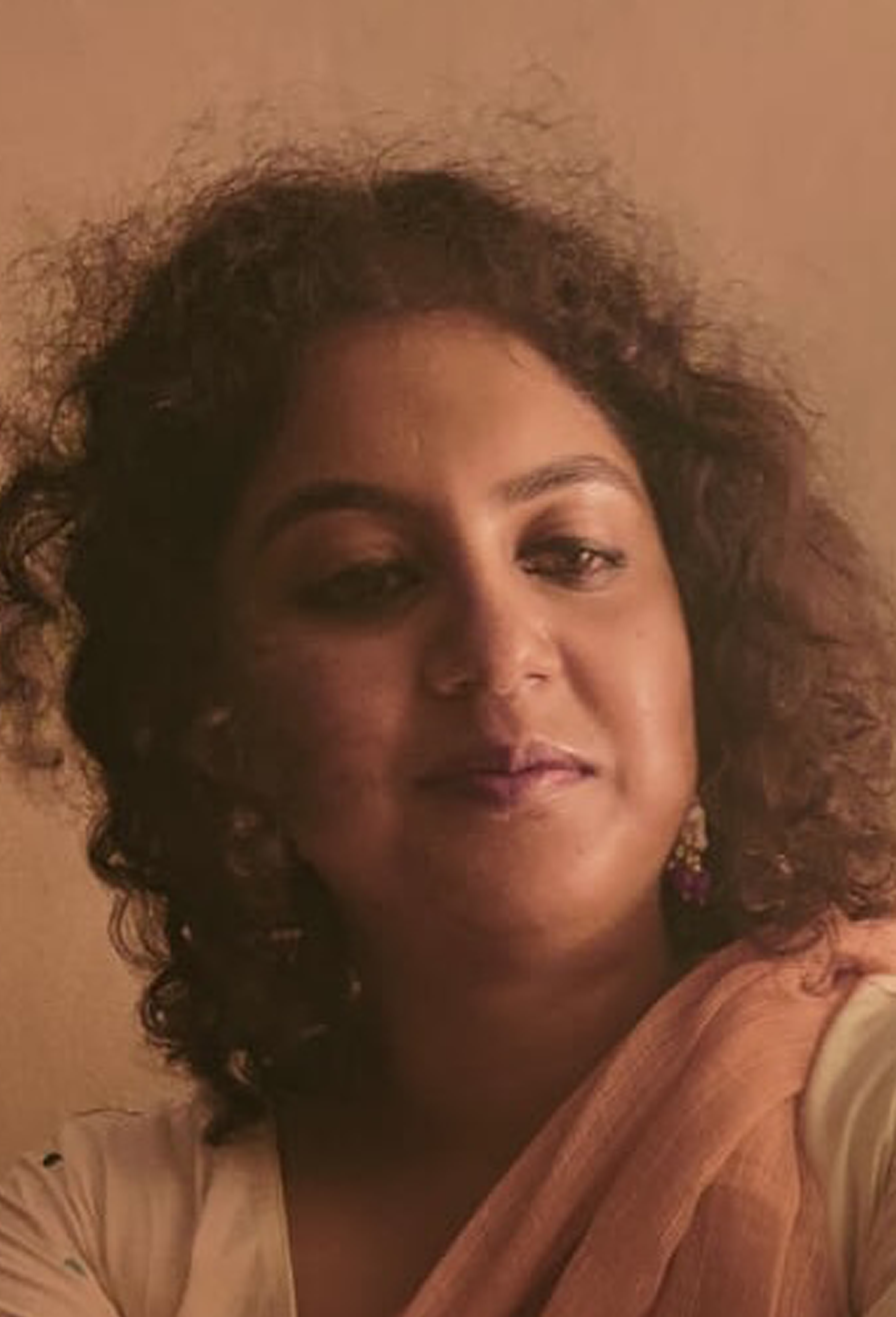UC San Diego Humanities Scholars Make Sense of Complicated Histories
Three faculty explore global histories of addiction, Pan-Africanism and cinema as contraband
Published Date
Story by:
Topics covered:
- School of Arts and Humanities
- Department of History
- Department of Literature
- National Endowment for the Humanities
Share This:
Article Content
In 2020 amid a growing global pandemic, Claire Edington was lecturing on the frightening experiences of people during the bubonic plague that ravaged Europe and the Middle East over 600 years ago. “It was so eerie teaching about the Black Death while the COVID-19 pandemic was in full force,” said Edington, a faculty member in the Department of History.
One of her goals for the course is to expose students in medicine and health to the significant lessons that history holds, which can provide crucial clues to navigating issues currently plaguing us. This is what historians—and humanities scholars at large—aim to do. They explore the “what,” “why” and “how” of human experience—from the evolution of core values to the influence of power structures and the ways we interpret people, events and ideas.
Three faculty in the School of Arts and Humanities were recently selected by the National Endowment for the Humanities (NEH) to receive $60,000 fellowships for their research project. Annually, the NEH chooses a small number of projects to support, each going through a rigorous peer-review process. Like many federal agencies, NEH has been affected by workforce reductions and administrative orders, leading to more than 1,000 grants receiving termination notices and impacting humanities faculty across the nation, including at UC San Diego. Shortly after receiving the three NEH grants, the university received notice that all three were terminated.
“Learning from historical precedent, shaping effective policy and choosing ethical paths forward all depend on critically examining both the triumphs and shortcomings of our shared humanity,” said Cristina Della Coletta, Dean of the School of Arts and Humanities. “Grants from federal agencies like the NEH empower our humanities scholars to untangle the complexities of our world and help shape a more informed, equitable future. The humanities do not manufacture consent but rather question it and as such are agents of liberation.”
Humanities faculty at UC San Diego recently recognized by the NEH include Associate Professor of History Claire Edington, Assistant Professor of History Bright Gyamfi and Assistant Professor of Literature Silpa Mukherjee. Each of their projects seeks to make sense of complicated histories in ways that will translate to direct learnings that can be valuable today.
A social history of Vietnam through the prism of addiction
“Grants from federal agencies like the NEH empower our humanities scholars to untangle the complexities of our world and help shape a more informed, equitable future. The humanities do not manufacture consent but rather question it and as such are agents of liberation.”

How did we get here? And how could circumstances be better moving forward? These are two big questions that occupy Edington. As a historian of medicine, she is interested in how ideas about illness and recovery are experienced and negotiated among experts, particularly in Southeast Asia.
It was a visit to Hanoi, Vietnam in 2008 as a doctoral student that sparked Edington’s current research trajectory. While helping to train medical students in public health research, she happened upon a trove of patient case files from two asylums built when the country was a French colony. The fascinating find inspired her latest book project, which explores Vietnam’s experience with addiction from the perspective of those at its margins. Titled “After Opium: Drug Addiction and Recovery in 20th Century Vietnamese History,” the project was recognized with an NEH grant in January, followed by a termination notice in April.
Existing scholarship on the history of opium use in Southeast Asia focuses on the political and economic dimensions of the drug trade rather than the social effects of drug use. Edington is filling the gaps with sources such as addict memoirs, cookbooks that contain home remedies for addiction, records of drug detox clinics as well as interviews with policymakers in Vietnam today.
“This project promises to make important contributions to Southeast Asian, and especially Vietnamese, history, the global history of drugs, the interdisciplinary field of addiction studies and the history of colonial and postcolonial medicine,” said Edington. “I’m particularly eager to translate this research for a public health audience, especially global health and addiction specialists who work in the region, to help challenge assumptions about the Vietnamese past which continue to inform how drug policy is made.”
Mapping the global influence of Pan-African intellectuals

In the 1960s, Ghana became a vibrant crossroads for African intellectuals, activists, and revolutionaries who came together to dream and debate what liberation should look like. But when President Kwame Nkrumah was overthrown in a coup, the momentum that had been established toward decolonization, African unity and Black liberation stalled—or at least, that’s how some history accounts tell the story.
While some scholars frame President Nkrumah’s downfall as a significant rupture in colonial liberation efforts, Assistant Professor of History Bright Gyamfi argues it ignited a global transformation. He has been traveling the world to uncover clues about what happened to the passionate activists and scholars after that pivotal coup. He has journeyed to Ghana, Senegal, Grenada, Trinidad, Tobago, the United Kingdom and the U.S. visiting remaining archives and conducting oral interviews. And what he has found is that, instead of being halted, these scholars formed global networks that ultimately strengthened Pan-Africanism and Black internationalist thought.
“My research is not simply an intellectual exercise; it is and remains a deeply personal project,” said Gyamfi, who grew up in Ghana. “I want to change the way we think about Africa as an intellectual space that is generating robust ideas.”
His manuscript, “Embers of Pan-Africanism: Nkrumahist Intellectuals and Decolonization, 1960-1980,” was awarded a grant from the NEH, which recently received notice of termination. The project tells the untold stories of the exiled scholars who continued writing, teaching, organizing and collaborating, reimagining Africa and contributing to emerging fields like Black Studies, Latin American Studies and postcolonial theory.
Exposing the shadowy entanglements of cinema and crime

Three years ago, Silpa Mukherjee made a key discovery while conducting research in Mumbai, India. She found details of two Muslim movie producers who were convicted of terrorist conspiracy for allegedly delivering the ammunition that caused the serial blasts that shook Bombay in 1993. She has been developing a manuscript on the topic ever since, tentatively titled “Cinema as Contraband: The Transregional Corridor from Bombay to Dubai (1977-1993).”
“I got excited by the realization that the state exploited the blasts as canny purveyors to frame Muslimness as ‘criminal,’” said Mukherjee, who is an assistant professor of film and media, Global South and cultural studies in the Department of Literature. “This work uncovers how the ostensible ‘uselessness’ of entertainment played into the state’s discursive logic, made visible through its strategic permissiveness of crime.”
According to her research, a Dubai-based mafia exerted control over cinema in Bombay (present-day Mumbai) in the late 1970s to 80s. Mukherjee’s project shines a light on the shadowy role of the state in nurturing the connections between cinema and crime. She centers on a contraband corridor connecting Bombay and Dubai where an illegal economy was concealed by the hypervisibility of cinema, which drew attention to its own excesses.
Mukherjee’s project was awarded a grant by the NEH earlier this year yet was also among the group of awards receiving notice of termination. Her work has been recognized with other awards, including a fellowship through the Suraj Israni Center for Cinematic Arts. The funding supports her research and capture of audio-video footage for a video essay project linked to her larger book manuscript. Suraj Israni Center fellowships are available to current UC San Diego students and faculty to support film research or production, with awards typically announced each fall and spring.
In addition to Mukherjee, Bright and Edington, Associate Professor of History Dana Velasco Murillo is a recent NEH fellowship winner, allowing her to continue research toward a book tentatively titled “The Chichimeca Arc: War, Peace, and Resettlement in America’s First Borderlands, 1546-1616.” Announced in 2024, Velasco Murillo was scheduled to start her fellowship in July of this year. She received notice her grant was terminated in April.
Topics covered:
- School of Arts and Humanities
- Department of History
- Department of Literature
- National Endowment for the Humanities
Share This:
You May Also Like
Engineers Take a Closer Look at How a Plant Virus Primes the Immune System to Fight Cancer
Technology & EngineeringStay in the Know
Keep up with all the latest from UC San Diego. Subscribe to the newsletter today.



